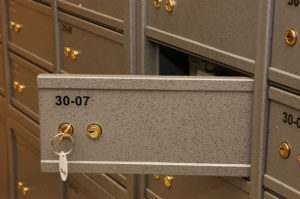Estate Planning for Our Pets

Many people laugh when they hear about estate planning for pets. They think of outrageous stories of a dog or cat being left millions in a trust. But have you ever considered what would happen to your pets if you were not around to take care of them?
It’s easy to assume that someone will step in to care for your pets after you pass away, but the reality is, unless you have made arrangements ahead of time, your pet could be released onto the streets, dropped off at the shelter, neglected, or euthanized. In the best of circumstances, your pets might not get the special care they need if you have not left behind instructions regarding their special food, medications, and other details that would help someone care for your pet the way you would have.
The simplest way to make sure your pet will be cared for after you’re gone is to talk to one or two people to get their commitment to either take your pet into their home or find a good home for your pet. You can then include a short paragraph in your Will or living trust stating who should get custody of your pet. You can even leave the person who agrees to take your pet a small sum of money as a token of your appreciation.
If you are unable to find a person to agree to take your pet, there are organizations dedicated to the care of pets in exchange for a monetary gift to the institution. These organizations usually require that you make arrangements for the pet’s care during your lifetime. Your estate planning attorney should be able to give you more information regarding the organizations that offer these services.
Pet trusts are becoming more and more popular as a vehicle for providing the funds to care for pets after an owner’s death. If you want to leave money for the care of your pets after you are gone, a pet trust will make sure that the funds are spent on your pet and not used for other purposes.
You also need to consider what happens if you are alive, but unable to care for your pet due to a disability or incapacity. That’s why you should include provisions in your power of attorney allowing your agent to make arrangements for the care of your pet when you’re unable to do so, yourself. Your power of attorney should also allow your agent to expend funds for the care of your pets.
In any event, you should compile a set of instructions for your pet’s caretaker to follow. If your pet needs to be fed a certain type of food at precise times of day, prefers a special toy, has a specific bedtime or needs to be walked three times a day in a specific park near your home, you can include all this information in the instructions.
Many of us consider our pets as are part of our families. As such they need to be included in our estate plan, along with everything else we treasure.
Reference: The Harvard Press (May 14, 2020) “COA speakers urge pet owners to plan for their animal’s future”

